#accusa segreta
Text
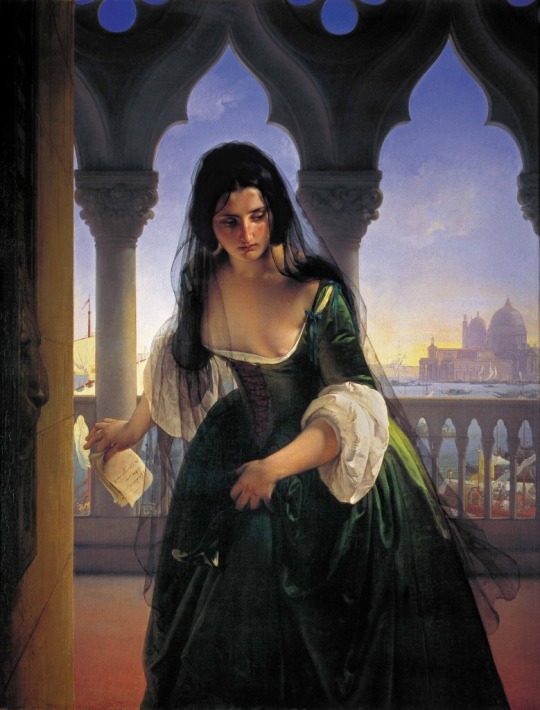
Secret Accusation (between 1847-1848, oil on canvas ) | Francesco Hayez
#art#fine art#painting#oil painting#19th century#secret accusation#accusa segreta#francesco hayez#revenge triptych
580 notes
·
View notes
Text

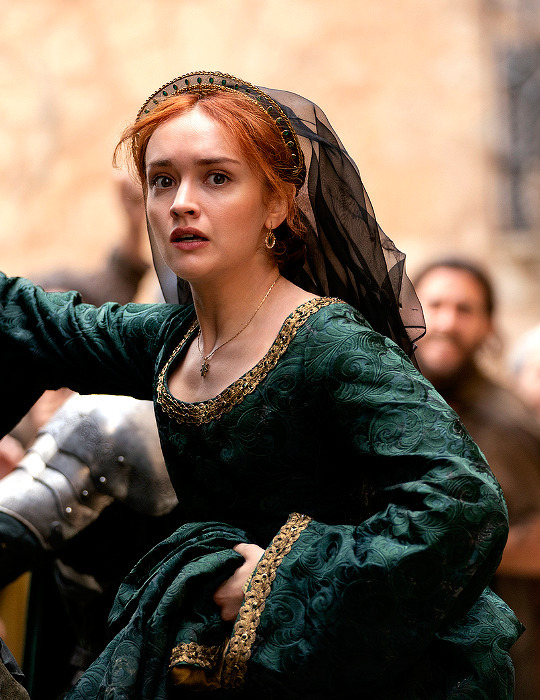
accusa segreta by francesco hayez (c. 1847-1848) / house of the dragon (2022-present) cr. george r. r. martin & ryan condal
#house of the dragon#hotdedit#welighttheway#team green#alicent hightower#olivia cooke#hotd#mine#mww#hotdww#comparative#comparatives#web weave#web weaves#web weaving#web weavings#i haven't seen this before but i also doubt this hasn't already been done
595 notes
·
View notes
Text

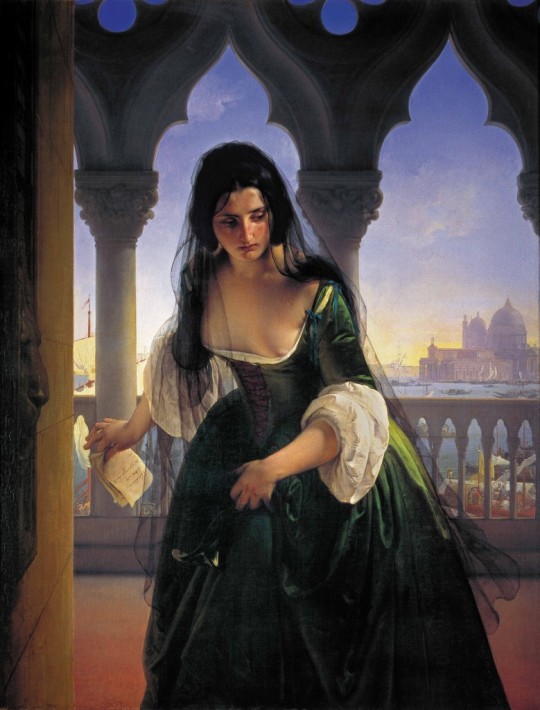
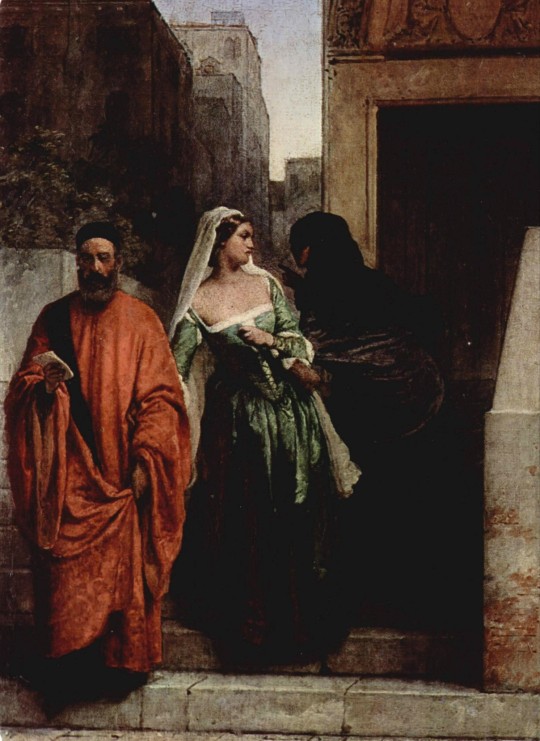
Francesco Hayez - The Revenge Triptych: Consiglio alla vendetta (1851) - Accusa segreta (1847–1848), La vendetta di una rivale (1853)
576 notes
·
View notes
Text

Francesco Hayez (Italian, 1791-1882)
Accusa segreta
183 notes
·
View notes
Photo
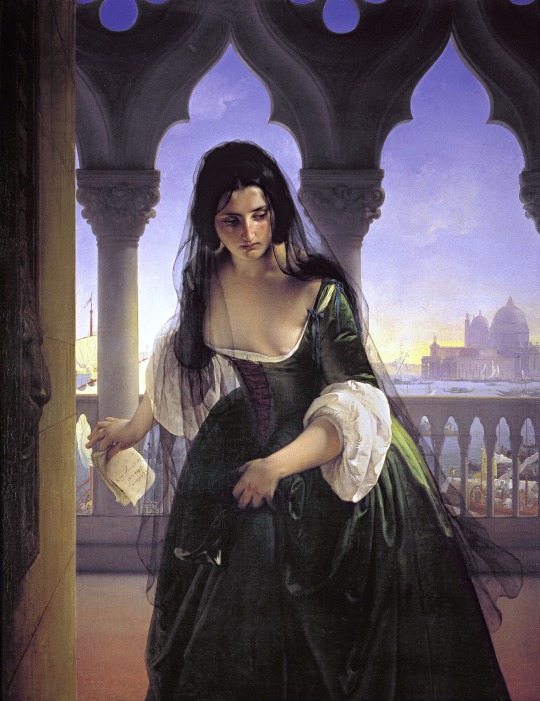
Francesco Hayez (1791-1882, Italian) ~ La accusa segreta, 1847-48
837 notes
·
View notes
Text
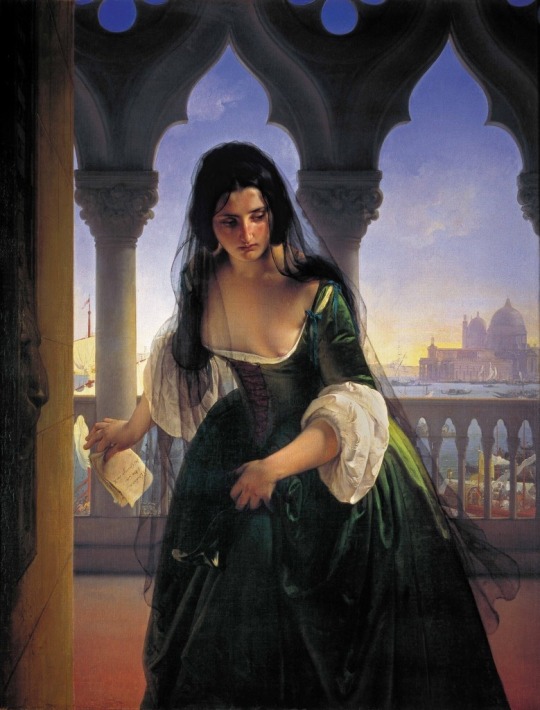
Secret Accusation (Accusa segreta) by Francesco Hayez
Secret Accusation was painted in 1847–1848, the first of the three but showing the second episode. Its dating is based on a print of it by Giuseppe Barni based on a drawing by Luigi Toccagni in the catalogue for the 1850 Breda exhibition. It shows Maria posting the letter anonymously denouncing her lover.
The Revenge Triptych (Italian - Trittico della Vendetta) is a set of three mid-19th-century oil on canvas paintings by Francesco Hayez. They centre on a woman named Maria and her revenge upon a lover who has betrayed her.
#venice#art#francesco hayez#venetian#venezia#painting#history#europe#european#renaissance#northern italy#italy#romanticism
69 notes
·
View notes
Text
Madame Putiphar Readalong. Book Two, Chapter XVIII:
Themes in this chapter, some new, some recurring:
Women.
False friendships
Common folk adopting the views and mentality of the authorities that oppress them
Explicit critique of Honour as a masque of masculinity
Debby’s almost supernatural perceptiveness

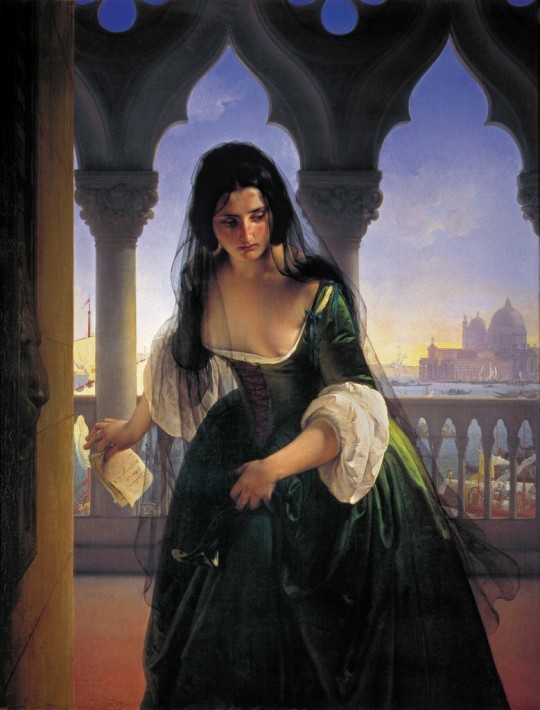
Francesco Hayez' study and oil painting Accusa segreta from his Vendetta triptych
This chapter is all about Patrick and Deborah not communicating verbally. They have to recur to guessing each other’s (bad) moods from their expressions and attitudes since hiding the bad stuff is a habit for them. If they had been more open, they might have been safer from the immense threats closing in all around them, and they would have found comfort in each other’s love. As @counterwiddershins observed, this silence is what endangers them the most. And this chapter will display how the lovers keep trying to protect each other by not being wholly sincere.
Debby is still visibly distressed from Villepastour’s attack. Patrick finally gets back home (from being detained in a cell for the night by Villepastour) and he worries about her once he sets his eyes on her, despite her remaining silent. She won’t talk about what happened to her, since she is afraid of how he’d react. She chooses to keep the fact that a powerful man is set on raping her, has gone as far as to break into their house, to herself. She fears Patrick’s tendency to terror and rage, and fears to cause him anguish. She even suspects Patrick might get jealous. This is not the first time Debby has chosen to stay silent when being subjected to sexual aggression. She fears causing a scene and having church goers/the neighbours think she is the provocateuse, now she fears Patrick having an emotional reaction that will be harmful to him... Debby lives in fear of what others will think of her, of hurting her love. She puts her own feelings and safety well behind those other worries.
Borel inserts a rather silly line about how frivolous women are guilty of making their lovers jealous on purpose/when it’s appropriate to make a lover jealous (aka: never when a lover has Patrick’s passionate temperament) but Debby would never, because she is literally, not like the other girls.
This talk of jealousy seems out of place here... surely once again Debby is wrong -like when she has suspected Patrick had been the one stabbing her, instead of Chris- in assuming Patrick would be jealous of Villepastour? (jealousy might be mixed in a spontaneous reaction, but surely there are graver things at stake here??) We have seen Patrick speak explicitly against stereotypical macho behaviour. Either Debby knows things about him the reader does not, or more plausibly, the trauma from her long exposure to the violence of her father has made her secretly expect similar behaviour from any man.
(I literally don’t know what to do with these common sense rubbish, madonna/whore complex statements. Knowing how Borel frequently pretends to espouse ideas he will later contradict, it’s tempting to think he is playing with the reader once more, but so far there’s no indication that he is doing that. There’s a clear line drawn by him between Debby and the women of the court who use their sexuality for their social ascent, for example. The women of the court are all lumped together and there’s no distinction made between them.)
Then Patrick reveals Fitz-Harris has been arrested for composing songs against la Pompadour. In the heat of the moment Debbie reacts with joy at his arrest. Because she “instinctively” dislikes him, and because she thinks this is as case of fuck around and see what happens. She implicitly agrees that it’s good for Fitz-Harris to become a victim of censorship of the state/arrested sans trial by Sartine for composing a satirical song against Mme P. (she repents when Patrick tells her there’s no way of knowing if he’d ever be released)
Patrick is disgusted at how the other soldiers take the side of the authorities. Even the guys who were Fitz-Harris’ former “friends” when he was free. We see here the recurring theme of false friendships -an evil only the confort of the grave can make humanity immune from, as the prologue poem pointed out. Another recurring theme that is shown through this situation, is the common folk taking the side of their oppressors. We had seen this before in Tralee, with the Irish high and middle classes, attending the trials of their fellow countrymen -some of which were revolutionaries fighting for freedom from imperial England-taking the side of the English and enjoying the day wearing their Sunday’s best as if it were a parade. (Patrick also reveals the men used to sing vulgar songs against Pompadour themselves,,, afer Harris' arrest, they talk of her as if they always respected her)(Patrick says the men are taking revenge against Harris’ envious nature... but I’d say it’s worse than that, it’s more than that too. They’re taking the side of the powerful against a peer who’s a victim of power abuse, no matter how petty and idiotic he was. They are defending the right of a tyranny to incarcerate without the due process, anyone who speaks against any member of the court)
Patrick proceeds to critique the notion of honour explicitly this time (he did implicitly when refusing Fitz-Harris’ duel challenge) Honour, understood as the soldiers do, is, as it was for Villepastour, a patina a soldier or a nobleman wears, an empty word, a destructive force too, mere macho posturing: once a bro’s reputation is damaged, there is no law of honour binding them to the fallen man:
“These gentlemen, who have made a law out of avenging themselves with swords, avenge themselves with their tongues quite a lot too. These gentlemen, who have made a law of honour out of seeking to end anybody’s life, even a friend’s, were they to offend them by accident, have not, as it appears, a law of honour to not crush an absent man, and to not strike a stricken man. Not one has expressed regret, not one had the slightest laudable thought in his favour. Cursed be the man who has only befriended people who fear him for his arm and tongue! If he falls they would applaud. The lumberjacks have barely chopped down an oak tree under which the fearful cattle used to hide at the slightest storm, that it immediately runs to graze and destroy the branches that had so often lent it a generous shade.”
(excerpt from @sainteverge ‘s translation)
These last words fill Debby with both pride and trepidation. She cannot let Patrick risk himself for an unworthy man.
However, strangely, they both believe he CAN rescue him. They think that if he explains to Pompadour why she has acted wrongly/or, why someone acted wrongly on her behalf without her being aware, she will understand and rectify the harm. Debby only doesn't want him to because she thinks it’s not worthy, because Harris doesn’t deserve it and in his place would never do the same for him. Neither of them thinks this could be dangerous for Patrick, and futile really... I am sorry to say they should know better by now. They are intimately aware of the power the nobles wield -they have had the examples of Cockermouth, Villepastour, even the libertine Bishop who has helped Patrick’s social ascent-... but they are naif enough to think mme P might be secretly a kind lady....
Debby also sums up Fitz-Harris' character, calls him a treacherous man, a betrayer of his brothers. Patrick doesn't contradict her. Her evaluation is so accurate he wonders if she knows/has heard about what happened between him and Harris. She hasn’t. Patrick was ready to believe she had supernatural powers, she thinks it’s the sensitivity and frailty of her body which enables her clairvoyance, she responds to sensitive vibrations (it’s interesting how neither of them justify this “second sight” via her being intelligent and observant, is the idea of “female intuition” lurking behind this?)
6 notes
·
View notes
Photo

Francesco Hayez (1791-1882). La accusa segreta (The Secret Accusation) ( 1847–1848). part of the Trittico della Vendetta (Revenge Triptych). Italian. Oil on canvas.
#francesco hayez#19th century#italian romantic#trittico della vendetta#revenge#oil on canvas#painting
27 notes
·
View notes
Text
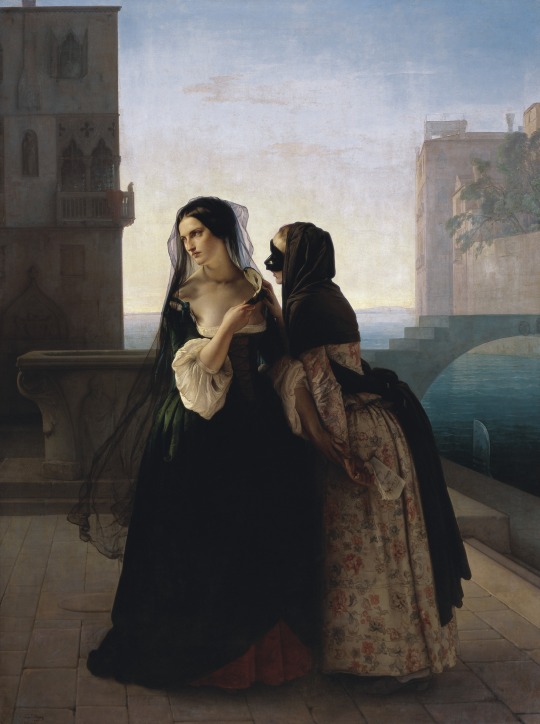
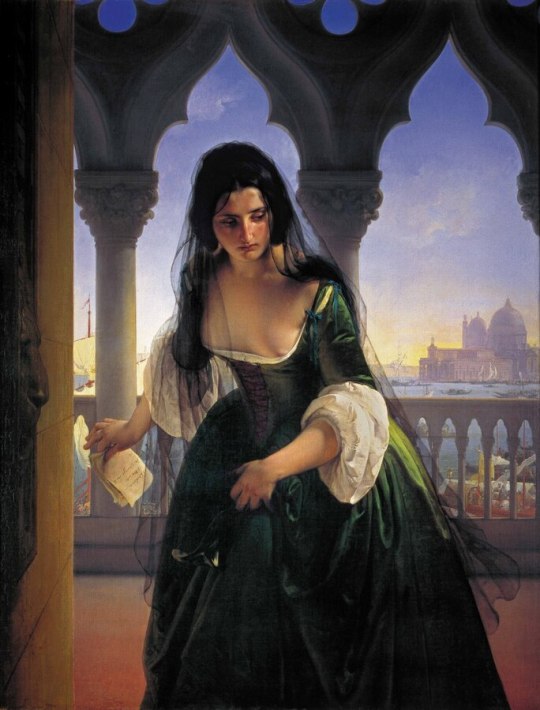
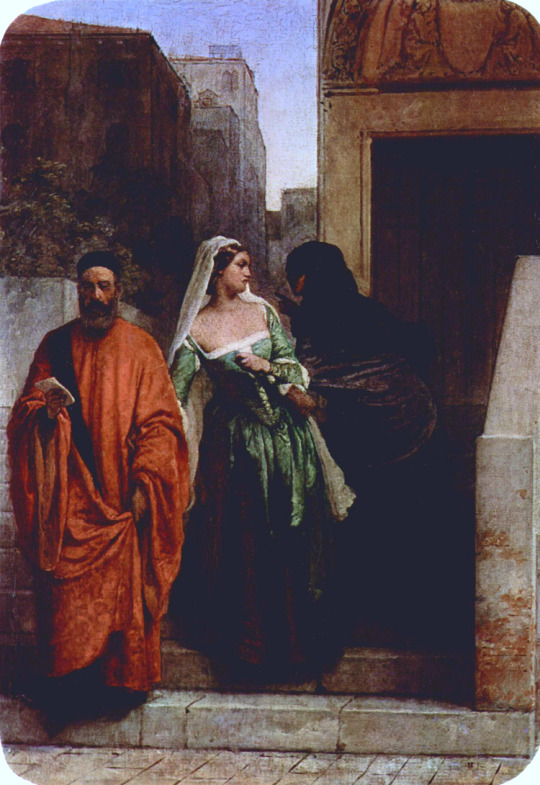
Francesco Hayez; ''Revenge triptych''
''Consiglio alla vendetta'' (eng. ''Vengeance is sworn''), 1851.
''Accusa segreta'' (eng. ''Secret accusation''), 1847. - 1848.
''La vendetta di una rivale'' (eng. ''Revenge of a rival''), 1853. (copy)
#art#painting#oil painting#woman#artist#artwork#painter#women#beautiful women#dark hair#venice#gown#francesco hayez#revenge#revenge triptych#triptych#vengeance#accusation#rival
3 notes
·
View notes
Text
*Ibrahim viene a sapere da sua moglie Zainab che è incinta di lui e aspetta due gemelli maschio e femmina ma Ibrahim è molto geloso e possessivo quindi non le permette di uscire e la accusa che potrebbe tradirlo con Felix Foster ma lei dice che questo non succederà ma Ibrahim non le crede e continua a segretarla in casa e nel frattempo lui esce di casa facendo soffrire molto quest'ultima.
Ibrahim nel frattempo incontra segretamente il suo collega e generale Omar Soudani il quale gli informa che attraverso i suoi uomini ha trovato Felix a Tunisi in Tunisia, Ibrahim propone allora di rapire quest'ultimo ma deve sempre rimanere a Tunisi ma deve costruire una prigione segreta per torturarlo e stuprarlo fino a ridurlo in gravi ferite e poi rilasciarlo ma in futuro si vedrà come ucciderlo ma per ora deve essere risparmiato dalla morte.
Omar è favorevole alla proposta di Ibrahim e farà quello che gli è stato chiesto quando sarà possibile e Ibrahim rimane soddisfatto*


5 notes
·
View notes
Text
Amori
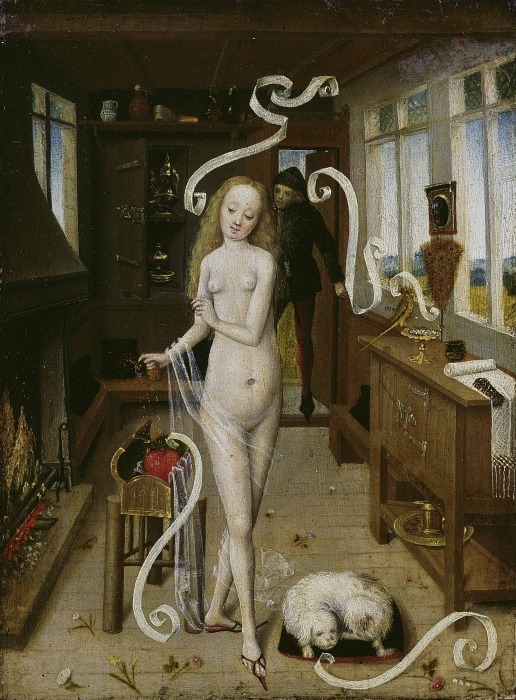
The love spell (incantesimo d'amore) | Unknown Master, active in 15th century, Lower Rhineland, Germany

Il Consiglio alla Vendetta (The Advice to Revenge), 1851 (Vaduz-Vienna, Liechtenstein, The Princely Collections) | Francesco Hayez (1791-1882, Italia)

Accusa segreta (Secret accusation), 1847-48 (Pavia, Castello Visconteo, Musei Civici) | Francesco Hayez (1791-1882, Italia)

Imelda de’ Lambertazzi, 1853 | Francesco Hayez (1791-1882, Italia)
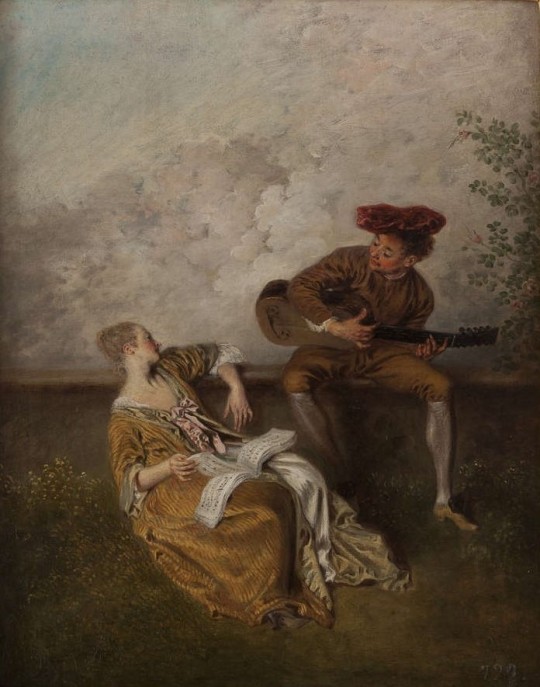
La Lezione di Canto (The Singing Lesson), 1718-19 | Jean-Antoine Watteau (1684-1721, France)
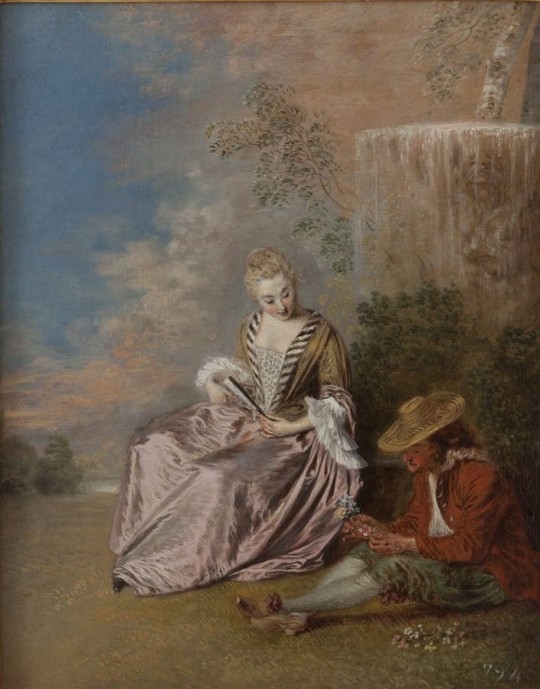
L'Amante timido (The shy lover), 1718-1719 | Jean-Antoine Watteau (1684-1721, France)
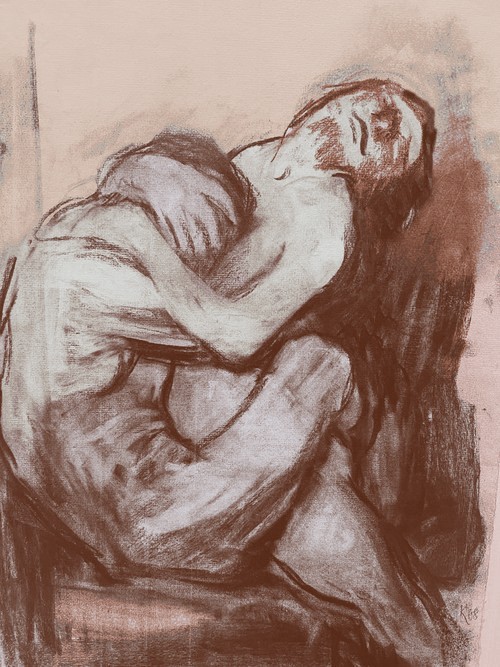
Love scene, 1909 ca. | Käthe Kollwitz (1867-1945, Germany)

La coppia (the pair of lovers), 1905 | Giovanni Boldini (1842-1931, Italia)

Il Sogno (the dream), 1905 ca. | Angelo Morbelli (1853.1919, Italia)
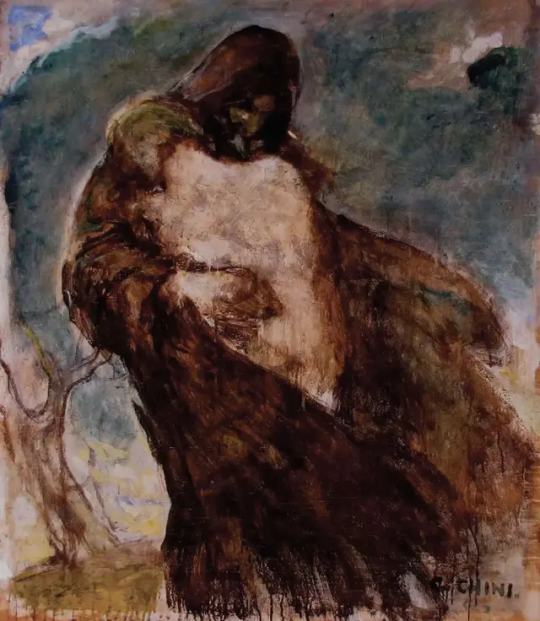
L’ultimo amplesso (the last embrace), 1953 (Montecatini, Accademia d’Arte, Montecatini, ita) | Galileo Chini (1873-1956, Italia)

Hellelil and Hildebrand (The meeting on the turret stairs), 1864 | Frederic William Burton (1816-1900, Ireland)
0 notes
Text
Esitai. Mi tirai un poco su, come per un colpo leggero alle reni, appena barcollando.
Di molte piante, lui avrebbe saputo il nome; e non gli sarebbe piaciuto che si dicesse "erbacce". "Erbacce, perché non servono a te? Perché non ti piacciono? Perché t'intralciano?" Sicuro, che me lo sussurrava all'orecchio. Ma io non potevo fare diversamente. Almeno ripulire, diamine. Alcune si raggruppavano in una famiglia ispida: sdegno o difesa, sembravano costringerle a una vicinanza serrata. Conro quelle mi accanivo, scalzando intorno con le dita, e piegandomi tutta da un fianco, dato che si trovavano in fondo, dal lato opposto della lapide.
E lui, il babbo, amorosamente contrastandomi: "Erbacce perché non rientrano in un certo schema?" Forse mi burlava; e questo avrebbe potuto offendermi; ma sentivo d'aver tutti dalla mia, specie la mamma ("Un orrore, una vergogna. Simile invasione di erbacce ti accusa") sì che insistevo fra gramigne e gambi fibrosi con foglie lanceolate e bizzarre. Di una vidi il fiore o il frutto che fosse, non so: una nappina compatta, color bronzo. Non la risparmiai.
Più basso, più penetrante, e tuttavia appena ironico, lui: "Erbacce perché l'uso vuole che si distruggano? Nascono condannate, le erbacce". Ero soltanto in grado di ascoltare. Trattenuta ogni fibra entro un fermo tessuto di rispetto e di timore, sussistevo in un'inerzia fragile. "Perché ti umilia quest'eccesso gratuito di impulso vitale?" Gratuito: voleva alludere al fatto che, fra gente meschina come "noi", è apprezzabile soltanto ciò che costa? Insisteva dolcemente: "Esuberanza povera povera". (Qui la voce si faceva struggente: appena il soffio di un caldo festeggiare, proteggendo.) "Povera: e per ciò, vedu, com'è pietoso questo far gruppo, questo avvincere..." Ma di che cosa mi parlava, dunque? Dove sconfinava il suo sussurro?
Infine, una segreta, fioca esclamazione: "È vita, Gianna; è vita!"
Gianna Manzini, Ritratto in piedi
0 notes
Text
[...]
I due magistrati, Falcone e Borsellino, segnavano una profonda differenza tra la mafia palermitana e quella trapanese: la prima, dicevano, era quella militare, la seconda quella economica. La prima è stata più facile da colpire, ma non è sconfitta e non finisce nelle tombe come i boss; la seconda ancora primeggia nonostante arresti, condanne e decine di provvedimenti di confisca, che nel trapanese superano il cinque miliardi di euro. A Trapani la mafia economica è rimasta nelle mani di Matteo Messina Denaro, sin da prima di quel 1993, anno dell’inizio della sua latitanza, cominciata, col padre, il padrino del Belìce, don Ciccio Messina Denaro, nella canonica di una chiesa di Calatafimi, dove un sacerdote si prendeva anche cura dei beni archeologici frutto degli atti predatori dell’anziano don Ciccio Messina Denaro.
[...]
Qui la mafia non è la Cosa nostra dei viddani, ma la mafia dei borghesi. Esempi? Il medico Melchiorre Allegra, specialista in malattie infettive e boss, in epoca fascista finì arrestato e confessò l’esistenza dell’organizzazione mafiosa. Oppure l’imprenditore trapanese Totò Minore, uomo d’onore che viveva con il rispetto di una intera città, presidente della squadra di calcio, tra i protagonisti del sacco edilizio della città e contrario alla presenza nel suo territorio delle raffineria di droga dei corleonesi di Riina, che per questo volle la sua morte nel novembre 1982. E sempre imprenditori con buone frequentazioni sono stati gli ultimi accertati capi, Vincenzo Virga e Francesco Pace, tutt’altro che viddani.
Questa mafia ha sempre avuto una precisa capacità della sommersione che funziona ancora oggi. È tanto legata alla massoneria da averne assorbito anche le caratteristiche organizzative. Mafiosi affiliati alla massoneria ne esistono tanti, ma il più importante fu il mazarese Mariano Agate tra gli iscritti alla loggia segreta C creata all’interno del circolo culturale capeggiato da un professore di filosofia, Gianni Grimaudo. Un circolo ben frequentato, anche da magistrati e giudici, pronti a colpire il lavoro onesto di loro colleghi, alcuni dei quali uccisi da Cosa nostra, come Gian Giacomo Ciaccio Montalto.
Non c’è indagine ancora oggi condotta dalla procura di Trapani che non si imbatta in personaggi della massoneria. In Tribunale è in corso il processo denominato Artemisia, imputati di aver creato una loggia segreta un pugno di politici di Castelvetrano, capeggiati da un ex deputato Giovanni Lo Sciuto, amico di gioventù di Messina Denaro. E ci sono inchieste che oggi dimostrano come la magistratura continui ad avere un ventre molle che permette pericolose infiltrazioni: non si spara più, ma ancora oggi finiscono nell’occhio del ciclone i magistrati che lavorano correttamente e non i traditori o i corvi. Inoltre partendo da Trapani e girando per la Sicilia, fermandosi a Capaci, dove la resistenza a Cosa nostra non pare essere quella che appare, è ancora oggi facile imbattersi in investigatori preparati finiti sotto accusa proprio le loro qualità. Come accadde al Bellodi uscito dalla penna di Leonardo Sciascia.
[...]
0 notes
Photo

Francesco Hayez, Secret Accusation (Accusa segreta), 1847–1848
1 note
·
View note
Text

The Staircase 📺 commento e riassunto episodi 1-4
Riassunto dei primi quattro episodi
Michael il 9 dicembre del 2001 telefona di notte al 911 perché sua moglie è caduta per le scale ma quando arrivano i soccorsi già è morta. A causa dell’enorme quantità di sangue strana per una sola caduta per le scale cominciano le indagini. Secondo il procuratore si tratta di un omicidio ma l’autopsia non riesce a spiegarlo o a trovarne traccia. Michael si avvale di un potente avvocato penalista David che però non riesce a evitargli il carcere a vita perché durante il processo viene considerato dalla giuria colpevole dell’omicidio.
Durante le indagini viene scoperto che Michael aveva degli interessi gay e di tanto in tanto si incontrava occasionalmente con svariate persone. Quando il procuratore ne interroga uno questo gli fa presente che il giro di tutti questi incontri comprendeva anche nomi di spicco. Per questo tutta la questione viene tenuta segreta e non ci sono testimoni per parlare degli incontri. Per quanto Michael dica che la moglie lo sapeva nessuno lo può provare e lui si proclama sempre innocente.
Viene poi fuori che la madre di Martha e Margaret, foglie adottive di Michael e Kathleen era morta anche lei cadendo per le scale. Era una vicina di Michael e della sua prima moglie Patty quando vivevano in Germania. Dato che questa donna non aveva più un marito Michael e Patty avevano adottato le due ragazze. Martha e Margaret acconsentono alla riesumazione della madre morta più di 20 anni fa e si scopre che il cranio presentava le stesse fratture di quello di Kathleen.
Nel frattempo l’altra figlia Caitlin, quella della vittima e del suo primo marito si schiera con le sorelle della vittima e accusa il suo patrigno.
Due documentaristi francesi si interessano al caso e si recano in America proponendo di girare un documentario sulla vicenda. Cominciano a riprendere tutte le varie fasi delle indagini del processo e dei dialoghi casalinghi tra la famiglia e l’avvocato.
Quando dopo la sentenza di colpevolezza nel 2003 i francesi tornano a casa e ritrovano la loro editor Sophie che nel frattempo aveva ricevuto le videocassette e aveva cominciato a sistemarle questa dice loro che aveva intuito che Michael era stato ingiustamente accusato di omicidio e che voleva provare a liberarlo dall’ergastolo a cui era stato condannato.
La serie inizia nel 2017 quando si vede Michael e Sophie uniti e diretti verso un appello che verrà spiegato in seguito…
Commento dei primi quattro episodi
Leggendo la pagina Wiki e stando attenti ad eventuali spoiler si può scoprire come questa serie sia basata sul documentario effettivamente creato sul vero caso di Michael, vera persona in Italia sconosciuta. Dunque i due documentaristi sono reali e il loro progetto è stato la base su cui si è lavorato per creare la serie. Per quanto mi riguarda la serie è sicuramente meglio di un documentario dato che li trovo estremamente noiosi e poco artistici proprio per quel loro tentare di essere obiettivi quando in realtà è impossibile esserlo, neanche la stampa e i telegiornali lo sono mai. Dunque preferisco una fiction confidando in un lato artistico e in attori che sanno il fatto loro (come in questo caso che sfoggia un cast eccellente). Mi viene spontaneo sorvolare Sul fatto che si basi su una storia vera, la veridicità del caso non è fondamentale ma si sa che è attraente per molti.
Il modo di raccontare è costellato di salti temporali si inizia nel 2017 poi si va al 2001 e poi al 2003, si torna spesso nel 2001 si osservano mesi prima della morte della vittima giorni prima e poi si torna al 2003, anno del processo che condanna Michael all’ergastolo a metà della serie.
I primi quattro episodi sono stati creati per costruire il caso e il processo e nel frattempo farci conoscere uno a uno e mai troppo chiaramente i vari personaggi e soprattutto i membri della famiglia Peterson. All’inizio prima della morte della vittima si ritrovano tutti seduti a un tavolo ma non sappiamo quali sono le loro reali relazioni e ne verremo a capo solo alla fine del quarto episodio.
Il fatto che si tratti di una storia reale non mi tange affatto ma ho particolarmente apprezzato il modo con cui è stato costruito con rivelazioni non tutte in una volta ma fornite in modo artistico come alla realtà accade. Tra l’altro è interessante come Michael abbia la sua vita segreta che però non ci permette di accusarlo veramente per quello che è successo. Manca infatti il movente anche se la giuria lo considera colpevole. La parte sui documentaristi che può sembrare inutile è stata geniale non solo perché sembra che proprio grazie a loro e alla editor Sophie si avrà una svolta ma anche perché c’è più movimento che genera credibilità, sono loro a girare come quasi se la vera telecamera scomparisse.
Una parte di noi continua a considerare Michael subdolo, ha trovato un’altra moglie in Sophie? Però sembra che lei lo abbia salvato… Certo è difficile riuscire a dare credito a chi passa da una moglie all’altra e anche sul fatto che aveva detto a tutti che aveva guadagnato una medaglia in Vietnam… Però… Anche lo spettatore rimane con un ragionevole dubbio. Raccapricciante ma neanche sorprendente quella storia della lista, il procuratore non ha voluto avere testimoni che avrebbero reso Michael più infido perché avrebbe tirato in ballo un sacco di gente importante come per dire ok Michael hai suoi segreti ma non sei di sicuro l’unico…
Lista dei personaggi principali
1. Michael Peterson protagonista, accusato di omicidio
2. Kathleen Peterson moglie di Michael, vittima
3. David Rudolf avvocato penalista
4. Clayton Peterson figlio di Michael e della sua prima moglie
5. Caitlin Atwater figlia della vittima e del suo primo marito
6. Todd Peterson figlio di Michael e della sua prima moglie
7. Margaret Ratliff figlia adottiva del protagonista della vittima
8. Martha Ratliff figlia adottiva del protagonista della vittima
9. Bill Peterson fratello del protagonista
10. Freda Black assistente del procuratore
11. Sophie Brunet Editor del documentario
12. Lori Campbell sorella della vittima
13. Candace Zamperini sorella della vittima
14. Jim Hardin Procuratore
0 notes
Photo
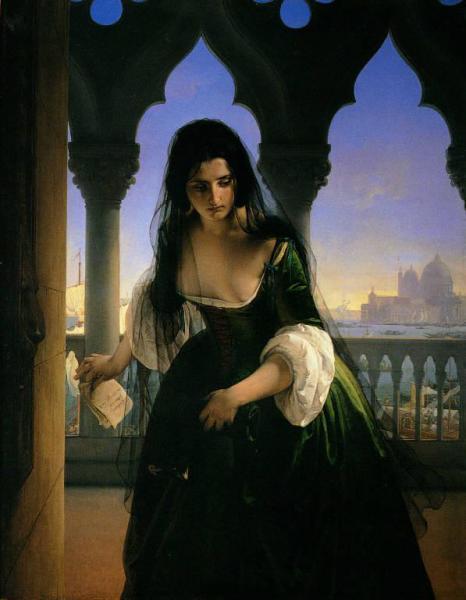
Accusa segreta
Francesco Hayez
1847-1848
Olio su tela
Musei Civici di Pavia
0 notes